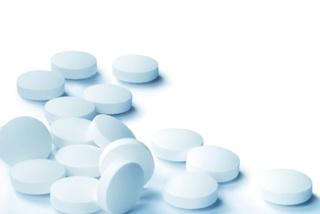
Some parents and caretakers may want to learn if hydergine and autism are a good mix. The medication may help prevent mental decline, but is it a good treatment for autistic disorders?
About Hydergine
Hydergine (ergoloid mesylates) is a medication that can be effective in treating cognitive problems associated with dementia and Alzheimer's diesease. The medication has shown some promising effects, according to Ergot-Derived Smart Drugs by Robert Mason, Ph.D.
- Increases blood flow and oxygen to the brain
- Improves metabolism in brain cells
- Improves memory and learning
- Prevents cell damage from free radicals
Please note that the effects are specific to people experiencing age-related mental decline. Is there a connection between the anti-aging, brain-enhancing medicine and pervasive developmental disorders? The notion of improving mental clarity in individuals on the autism spectrum is very appealing, and some aspects of hydergine and autism treatments mesh quite well.
Hydergine and Autism Treatments
Hydergine has proved itself effective in treating some individuals over the age of 60 who have signs of idiopathic mental decline. The connection to pervasive developmental disorders may not be readily apparent, but when you consider the symptoms of autism and mental decline, there are similarities.
The medication can treat problems associated with mental decline that also relate to autism:
- Interpersonal skills
- Cognitive functioning and memory
- Ability to focus and stay on task
- Anxiety and fears
- Self-care
- Motivation
- Emotional stability
- Orientation
- Cooperation
Autism is a neurological disorder that affects brain functioning, and hydergine has an effect on the central nervous system. If autism disrupts connections between areas of the brain, perhaps ergoloid mesylates can be beneficial. Speculation continues onto another topic: oxygen.
Oxygen and Autism
Some believe that autism may stem from a lack of oxygen to the cells in the brain. The lack of oxygen leads to cellular decline and death. If hydergine improves oxygen levels in the cells of the brain, the approach can be effective in treating, or even reversing, autistic symptoms.
The connection between pervasive developmental disorders and oxygen is nothing new, and some treatments try to deal with oxygen-related problems.
- Hyperbaric oxygen therapy is an alternative treatment that delivers oxygen to the brain. More research is necessary to determine if the approach is effective or not. The main focus in hyperbaric oxygen treatments is to elevate oxygen levels to repair problems in the limbic system that may cause autistic symptoms.
- Lack of oxygen to the cells can cause mitochondrial dysfunction, a condition that can manifest in autism-like symptoms.
- Stem cell treatments for autism seek to repair damage in brain cells caused in part by a lack of oxygen.
Each of these treatment options for autism have limited clinical backing, and more research is necessary to determine their effectiveness. The primary question is whether low oxygen levels is a cause of autism or not.
Ongoing Research into Effective Autism Treatments
The cause (or causes) of pervasive developmental disorders have yet to be discovered, which makes treating the conditions very difficult. If poor oxygen flow to brain cells is a factor in causing autism, then using hydergine may be effective. The drug may treat symptoms related to brain functioning, but it is not a cure for the disorders. For now, the medication is a popular "smart drug," not a treatment for autism.







